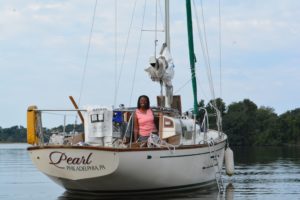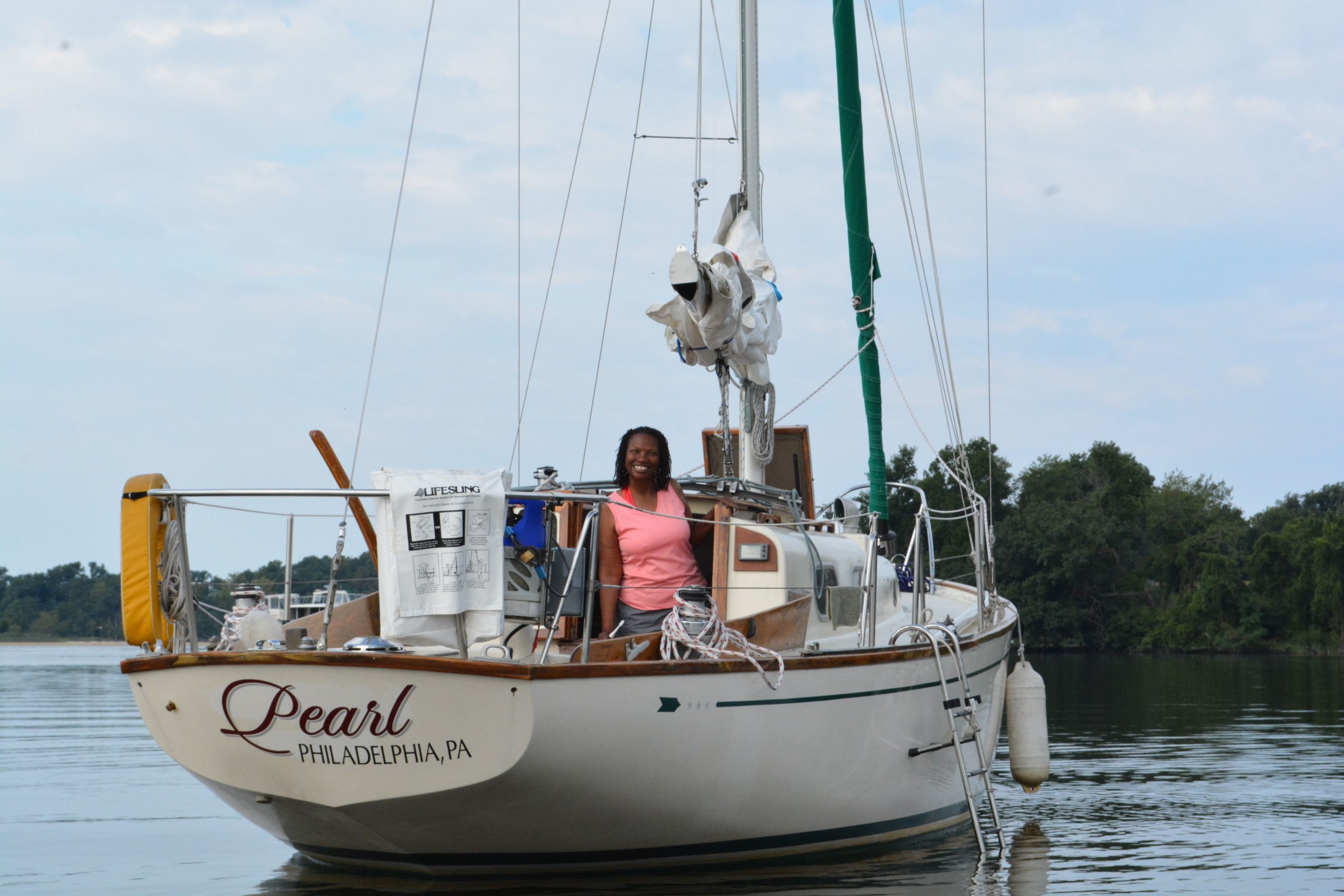An Interview with Pat Smith, President & CEO, The Funders Network
Advocate. Empathy. Adventurous.
Tell me about your current role?
I am the president and CEO of The Funders Network (TFN), a membership organization of 170 funders from across the U.S. and Canada, including national, regional, and community foundations. I learned after joining TFN that we have a significant number of community foundations as members. As you know, we recently completed the refinement of our strategic direction and homed in on what TFN wants to be as it grows. (Disclosure: La Piana Consulting facilitated TFN’s strategic planning process.) We are a 20-year-old organization and excited about where we have landed.
As a philanthropy serving organization (PSO), the challenge for the sector and TFN is how do we begin to really develop the next generation – the next courageous generation of philanthropic leaders – equipped to bring about racial justice and a just society. As we go through this period, philanthropy cannot continue what it has been doing and expect different outcomes. How can we be different as a sector? Doing work differently requires people coming together and figuring that out. I am seeing more and more calls for participatory grantmaking, meaningful community engagement, and not just tokenism: increased interactions with government and the private sector to find common ground; asking tough questions about the role of racism in our society, and to what extent philanthropy also perpetuates inequities. The idea of decolonizing wealth has led to many conversations. We need to bring others in to help figure out what needs to be done, creating space to learn, reflect and act.
If there was a soundtrack of greatest hits that reflect how you go about your work, what would make the list?
India Arie’s “Strength, Courage and Wisdom”: These are crazy times. When I don’t have clarity about where I need to be, where the work needs to go, or how I need to do it, I play this song often.
Nina Simone’s “Young, Gifted and Black”: I am excited by the younger voices coming to the fore in philanthropy. For me, TFN’s PLACES Fellowship exemplifies the next generation of philanthropic leadership and they inspire me.
I love jazz. One of my favorites is Miles Davis’ album, Kind of Blue, especially the track “All Blues.” Many think of only sadness when they hear the phrase I got the blues; I think of resilience, courage, and the history of our people…the expressive art about their struggles and strivings.
Sweet Honey in the Rock’s “Ella’s Song”, which is a tribute to Ella Baker who is considered the mother of the Civil Rights Movement. She worked with MLK, John Lewis and without question she was the tactical organizer for SNCC, or Student Non-Violent Coordinating Committee. She understood movement-building, community organizing and the leadership role of peoples’ voice in their struggles.
I love the phrase: “We who believe in freedom cannot rest.” It is just as important today in this moment. It can be overwhelming at times. You may just want to throw in the towel or leave the country, yet we who believe in freedom cannot rest.
The other lyric that resonates with me is: “The older I get the better I know that the secret of my going on is when the reins are in the hands of the young, who dare to run against the storm.” This lyric reminds me of the Black Lives Matter Movement, the protestors, and young people running against the storm. I believe in the vision and activism of young people. My role – philanthropy’s role – is how do we support them as they run? How do we relinquish the reins of power and support the next generation of leaders?
Work in the social sector can be very personal and linked to one’s values. Can you think of a time when your values were in tension and how you reconciled that tension or not?
I have held leadership positions in government with the City of Philadelphia, including leading a major mayoral initiative where I was often in community. For me it was often challenging to see all that needed to be done, knowing that government may not be able to resolve the problems despite my best efforts.
The tension comes into play when entering a church basement for a community meeting knowing that I might not have the answer or resources at my disposal and being honest about that fact. It’s not about simply saying no we can’t do this –too often we are too quick to say no. Sometimes it’s about acknowledging constraints as a first step in the problem-solving process.
With Obama’s election, there were all these high expectations, which caused me to think about how to engage people with integrity and not mislead them. I am not a believer in false promises (“Hey, we can do that”). I aim to be clear and transparent about what I can and cannot do which requires honest conversations about limits and where those limits are. “These are the constraints. Here’s why. Maybe we can figure this out together.”
Can you share an experience in the workplace where you have had to reclaim your time? What was the context? How did you navigate it?
I am terrible at carving out space for me. I often allow work to bleed into the rest of my life and that has been a challenge. I’m a workaholic who is always thinking about what needs to be done next. That means that sometimes I’m not rooted in the present or enjoying the moment. This has been a lifelong struggle where I am trying to be more intentional about self-care.
2020 has been a year unlike any other for me with a global pandemic, raging fires, and police brutality protests from coast to coast. What has been your biggest moment of reckoning so far this year?
The murder of George Floyd and the Amy Cooper incident in a short window of time…. the heartbreak of it. No matter your station in life, you are Black and at risk and vulnerable in this country. You know that and the concentration of those two events so close to each other…I know about systemic racism –I’m not naïve — but that really brought it home. It seems each week there is something else. Breonna Taylor. This week is all about voter intimidation. As imperfect as this democracy is, institutional norms related to how we voted seemed stable and it is all turned upside down. People have lost sight of the fundamentals of a democracy. We are living through a moment of reckoning and sometimes I wonder if we are going to get to the other side.
I suspect you will be listening to “Strength, Courage and Wisdom” more often.
James Baldwin said, “I can’t be a pessimist because I am alive. To be a pessimist means that you have agreed that human life is an academic matter. So, I am forced to be an optimist. I am forced to believe that we can survive, whatever we must survive.”
When Sherilynn Ifill, President & Director-Counsel of LDF (NAACP Legal Defense and Educational Fund) was interviewed on 60 Minutes, she said, “I don’t know of anything in the history of Black people in this country in which I’ve read some account in which it ended with, “and then they gave up.” That’s just not what we do. I know we work for the future of our children and our grandchildren and their children.” There is a perfect storm of so many different things.
 What is your approach to self-care? Are there any rituals you use to survive and thrive?
What is your approach to self-care? Are there any rituals you use to survive and thrive?
My partner, Elbert, introduced me to sailing which is restorative. Being near the water is healing. The arts, culture and music give me joy. Live music and travel to other countries bring me joy but those are on hold with the pandemic.
I have a group of women friends from all walks of life and ages who are an important part of my self-care. We used to go out to Sunday dinners, find a new restaurant with BYOB, and enjoy being with one another. We do it now over Zoom but it’s not the same.
We come from a resilient and strong lineage. How would you describe the type of ancestor you want to be and why?
A dear friend recently held a celebration for life to acknowledge the legacy of her mom. Her mom had generosity of spirit. I hope that is an attribution for me as well with family, friends, and young professionals who crossed my path. I try to be generous with my time with others.
In my own lineage, I think of my mom and grandmothers who embodied service, compassion and caring. I want to continue that line in terms of myself.
What advice would you offer other Black women trying to develop or amplify their voice and become better self-advocates?
Love yourself. Be true to who you are. Do not let others define who you are.
Trust your instincts.
Begin to cultivate and know a group of folks you can reach out to when you have doubts.
And in the words of India Arie: “Step out on faith”. Take those risks and don’t hold back.
If you could change the social sector in a way that would benefit or affirm Black women, what would that change be?
For Black women running organizations or in leadership positions, make sure we have the resources to survive and thrive. There is an expectation that we can do the lion share of work while underfunded.
Do not second guess our decisions and listen to our voices.
There is an expectation for us to keep going without acknowledgement that we may be in pain and our communities are suffering. Immeasurable emotional labor and traumas mark this moment. Black folks are hurting in so many ways.



Powerful. Thanks for this transparent and authentic piece.